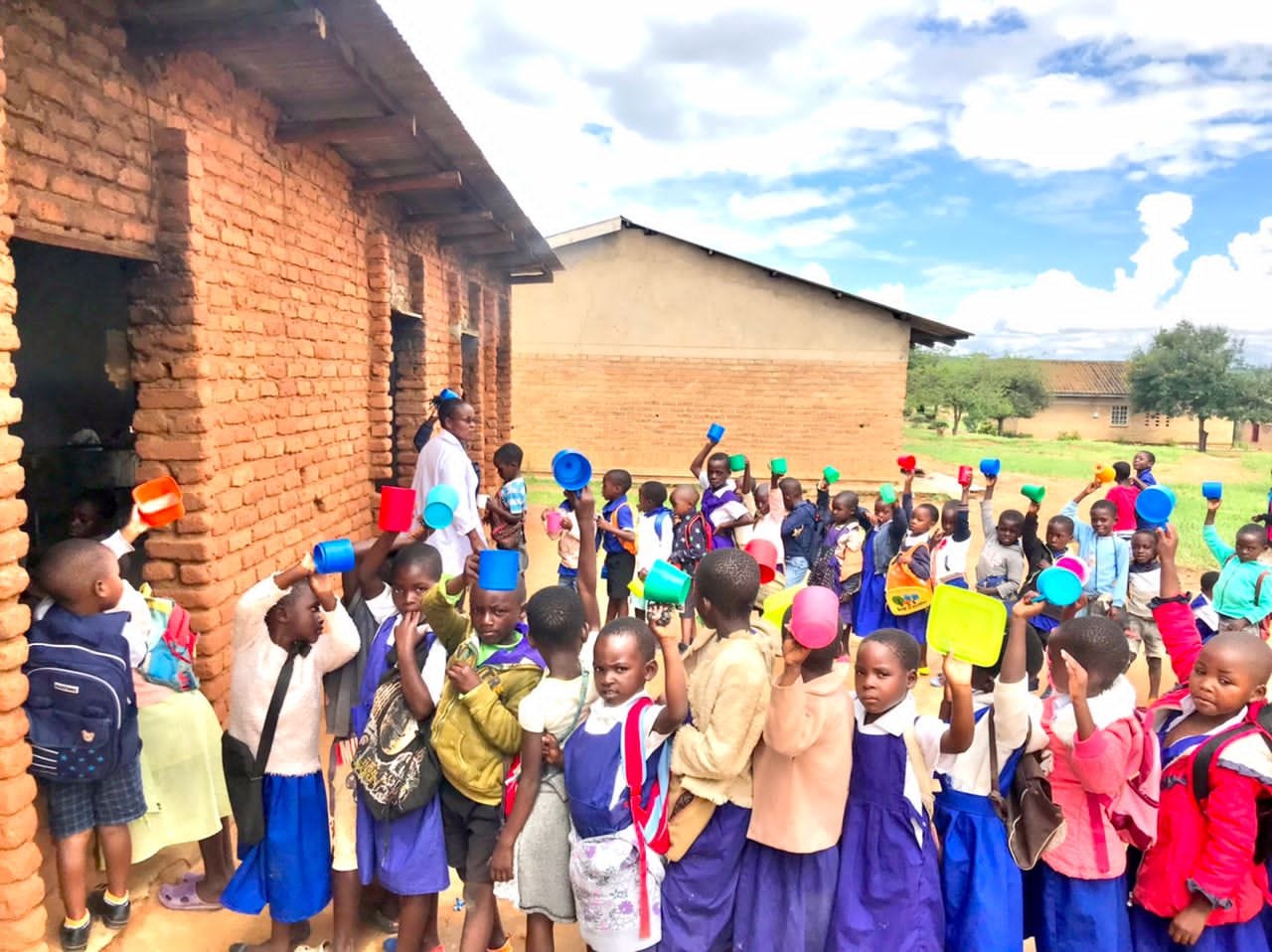School Feeding Program Improves Enrollment and Performance in Mzimba
Seibo Maria's school feeding program in Mzimba district boosts enrollment, reduces dropout rates, and improves academic performance among vulnerable learners.
MZIMBA, MALAWI — Seibo Maria, a non-governmental organisation, has been executing a school feeding programme in Mzimba area to combat incidences of abscondment, writes Alinafe Sambo.
Over 15,000 needy and disadvantaged students have benefited from the scheme, resulting in increasing enrolment rates.
The organisation focuses on children from rural and underprivileged families in Mzimba, Malawi's largest district in the northern area.
Likuni Phala, a nutritious porridge, is distributed to selected primary schools in the district.
The daily provision of free porridge encourages hungry children to attend school on a regular basis.
It minimises the possibility of students skipping classes since they know they will be fed at school, as opposed to their homes, where hunger is rampant.
Many Malawian homes experience annual food insecurity, which frequently leads to children dropping out of school because their basic requirements are not satisfied.
According to Justice Nantchengwa, a Field Operations Officer for Seibo Maria, Seibo Maria's school feeding programme, which began in 2016, has benefited over 15,000 pupils in the Kaphuta and Matchecheta zones.
Statistics show that the passing percentage has increased from 53% to 87.45%, and the retention rate has increased from 30% to 68% since the program's beginning. The project has received encouragement from well-wishers in Japan.
In the targeted locations, the school food programme has effectively reduced dropout rates, mitigated malnutrition instances, and increased enrolment rates.
Wachaula Vinkhumbo, the Matchecheta zone's Primary Education Adviser (PEA), highlighted the difficulties that rural children confront in obtaining education.
Motivation and hunger are major variables that cause many students to drop out of school at a young age.
"Poverty is one of the biggest challenges that hinder the educational progress of rural children. Often, they lack motivation and are surrounded by individuals who fail to emphasize the importance of education," said Vinkhumbo.
The implementation of a school food programme has increased enrolment and academic performance in rural schools.
The programme has helped to raise enrolment in the Kaphuta and Matchecheta zones from 12,060 in 2016 to 15,774 in 2023.
Clay Chipeta, the Head Teacher at Kanyerere Primary School, confirmed to the program's excellent impact on student achievement.
They have seen considerable improvements in the passing rate as a rural school.
"With the support from Seibo Maria, our learners have shown improvements in their performance, and the enrollment rate has also increased," said Chipeta.
The program has facilitated increased learner enrollment and reduced malnutrition cases, particularly in junior classes.
"In rural areas, learners often come to school on empty stomachs, making it challenging for them to perform well in class. The issues of dropout and absenteeism were prevalent. However, with the porridge provided, learners are motivated, and their performance surpasses expectations," added Chipeta.
Justice Nantchengwa, Seibo Maria's Field Operations Officer, noted that the concept was conceived after watching the daily obstacles faced by students who do not eat breakfast.
The feeding programme attempts to ensure that children's entitlement to education is met.
"Every child has the right to access education, and children cannot concentrate in class when they have not had breakfast. In rural areas, it is difficult for them to excel academically, including during national examinations," stated Nantchengwa.
The initiative has dramatically expanded enrollment, with 15,774 learners in the Kaphuta and Matchecheta zones expected in 2023, up from 12,060 in 2016.



